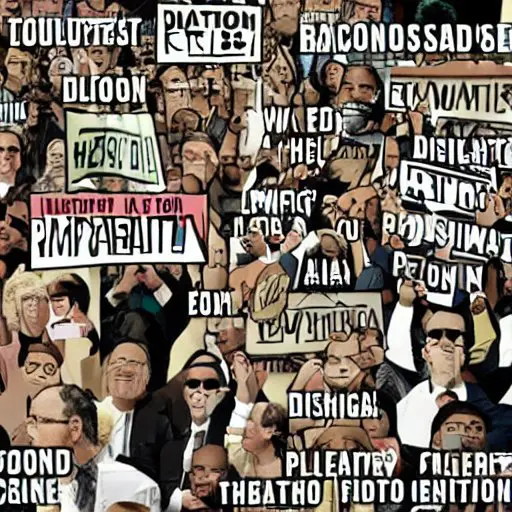The “lizard people” conspiracy theory is one of the more fantastical narratives that have found a niche within modern conspiracy culture. This theory suggests that shape-shifting reptilian aliens have infiltrated human society to gain power and control. They are often depicted as occupying high positions in government, finance, and industry, manipulating global events to serve their sinister agenda.
Origins and evolution
The roots of the reptilian conspiracy theory can be traced back to a mix of earlier science fiction, mythological tales, and conspiracy theories. However, it was British author David Icke who, in the 1990s, catapulted the idea into the mainstream of conspiracy culture. Icke’s theory combines elements of New Age philosophy, Vedic texts, and a wide array of conspiracy theories, proposing that these reptilian beings are part of a secret brotherhood that has controlled humanity for millennia — a variation on the global cabal conspiracy theory framework that shows up in a lot of places.

Icke’s initial ideas were presented in his book “The Biggest Secret” (1999), where he posits that these entities are from the Alpha Draconis star system, now hiding in underground bases and are capable of morphing their appearance to mimic human form. His theories incorporate a broad range of historical, religious, and cultural references, reinterpreting them to fit the narrative of reptilian manipulation.
Persistence and appeal
The persistence of the lizard people conspiracy can be attributed to several factors. First, it offers a simplistic explanation for the complexities and injustices of the world. By attributing the world’s evils to a single identifiable source, it provides a narrative that is emotionally satisfying for some, despite its utter lack of evidence.
Second, the theory thrives on the human tendency to distrust authority and the status quo. In times of social and economic upheaval, conspiracy theories offer a form of counter-narrative that challenges perceived power structures.

Third, the advent of the internet and social media has provided a fertile ground for the spread of such ideas. Online platforms allow for the rapid dissemination of conspiracy theories, connecting individuals across the globe who share these beliefs, thus reinforcing their validity within these communities.
Modern culture and society
In modern culture, the lizard people conspiracy theory occupies a peculiar niche. On one hand, it is often the subject of satire and parody, seen as an example of the most outlandish fringe beliefs. Shows, memes, and popular media references sometimes use the imagery of reptilian overlords as a humorous nod to the world of conspiracy theories.
On the other hand, the theory has been absorbed into the larger tapestry of global conspiracy culture, intersecting with other narratives about global elites, alien intervention, and secret societies. This blending of theories creates a complex and ever-evolving mythology that can be adapted to fit various personal and political agendas.
Despite its presence in the digital and cultural landscape, the reptilian conspiracy is widely discredited and rejected by mainstream society and experts. It’s critiqued for its lack of credible evidence, its reliance on anti-Semitic tropes (echoing age-old myths about blood libel and other global Jewish conspiracies), and its potential to fuel mistrust and paranoia.
Current status and impact
Today, the reptilian conspiracy theory exists on the fringes of conspiracy communities. While it has been somewhat overshadowed by newer and more politically charged conspiracies, it remains a staple within the conspiracy theory ecosystem. Its endurance can be seen as a testament to the human penchant for storytelling and the need to find meaning in an often chaotic world.

The impact of such theories is a double-edged sword. While they can foster a sense of community among believers, they can also lead to social alienation and the erosion of trust in institutions. The spread of such unfounded theories poses challenges for societies, emphasizing the need for critical thinking and media literacy in navigating the complex landscape of modern information.
The lizard people conspiracy theory is a fascinating study in the power of narrative, belief, and the human desire to make sense of the unseen forces shaping our world. While it holds little sway in academic or scientific circles, its evolution and persistence in popular culture underscore the enduring allure of the mysterious and the unexplained.














































